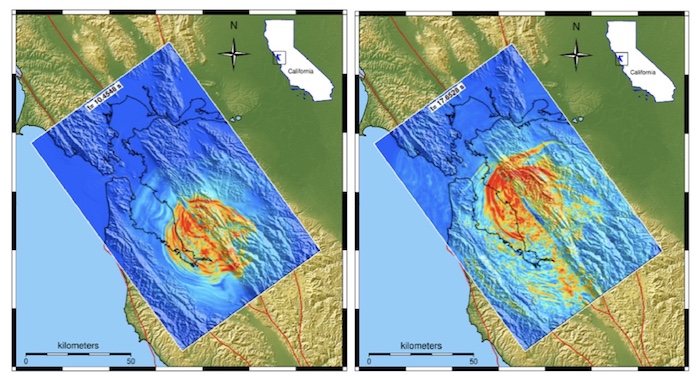Resilient Dynamic Autoencoders for Modeling and Predicting Earthquake Threats
 Large earthquakes generate strong ground motions and tsunamis that may lead to a significant number of casualties and cause severe impacts on social resilience in seismically active regions including the West Coast of the United States. Early warning systems have been developed to mitigate immediate threats by detecting first-arriving ground motions near an earthquake epicenter and forecasting the intensity and timing of strong destructive ground motions. To further improve the efficacy and accuracy of these systems, deep learning methods have strong potential, but it is crucial to significantly extend the forecast horizons of existing models. The highly heterogeneous spatiotemporal nature of the seismic wave propagation poses a fundamental challenge to machine learning. This project aims to address these challenges by developing resilient and reliable deep learning methods for forecasting noisy and complex spatiotemporal ground motion data. The resulting methods and open-source software tools will have applications beyond seismology, benefiting diverse scientific and engineering domains including earth, atmospheric, and climate sciences. Furthermore, the project provides research training opportunities for undergraduate and graduate students.
Large earthquakes generate strong ground motions and tsunamis that may lead to a significant number of casualties and cause severe impacts on social resilience in seismically active regions including the West Coast of the United States. Early warning systems have been developed to mitigate immediate threats by detecting first-arriving ground motions near an earthquake epicenter and forecasting the intensity and timing of strong destructive ground motions. To further improve the efficacy and accuracy of these systems, deep learning methods have strong potential, but it is crucial to significantly extend the forecast horizons of existing models. The highly heterogeneous spatiotemporal nature of the seismic wave propagation poses a fundamental challenge to machine learning. This project aims to address these challenges by developing resilient and reliable deep learning methods for forecasting noisy and complex spatiotemporal ground motion data. The resulting methods and open-source software tools will have applications beyond seismology, benefiting diverse scientific and engineering domains including earth, atmospheric, and climate sciences. Furthermore, the project provides research training opportunities for undergraduate and graduate students.
The project will primarily focus on advancing deep learning for spatiotemporal data processing. It will develop practical theory for (i) learning continuous dynamics, (ii) modeling multiscale structures jointly in space and time, and (iii) improving robustness of neural networks to natural perturbations in the input data. Computational deliverables will be neural network architectures for learning robust latent space embeddings and improved forecasting, which will account for uncertainties in ground motion data caused by sensor noise and scarcity in seismic recordings. Both observed and simulated ground motion data will be used for demonstrating the advantages of the proposed methods. The technical approach combines ideas from fields such as dynamical systems theory, seismology, and deep learning. By viewing spatiotemporal data processing and robustness through the lens of dynamical systems theory, the project aims to establish a principled framework that will significantly impact a broad range of scientific problems.
Funding for this research is provided by a grant from NSF, the National Science Foundation.
